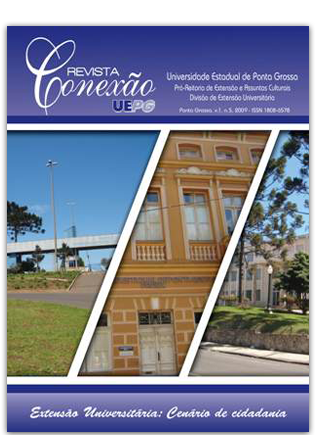EXTENSÃO UNIVERSITÁRIA E ARTICULAÇÃO DE SABERES: A PROPOSTA DO LALUPE – LABORATÓRIO LÚDICO PEDAGÓGICO
Mots-clés :
Extensão, Laboratório Lúdico Pedagógico, Formação de Professores.Résumé
O objetivo deste artigo é apresentar algumas reflexões sobre o papel da extensão no ambiente universitário, pois os projetos de extensão constituem-se como espaço ideal, para desenvolver ações que articulem o papel da Universidade e o seu compromisso social. Objetivando estabelecer essa relação, está sendo desenvolvido o Projeto LALUPE: Laboratório Lúdico Pedagógico:espaço para a formação de professores. Este artigo apresenta o referido Projeto de Extensão que tem, por objetivo, formar professores, capazes de utilizarem o pensamento conceitual diante da realidade, permitindo intervenções sólidas e consistentes na comunidade. A metodologia de trabalho se apresenta como proposta inovadora, possuindo, como aporte teórico, a pesquisa-ação, na perspectiva de Engel (2000); ensino pela pesquisa, de Berger (2004); e a complexidade como princípio, Demo (2002). Os resultados iniciais são expressos pelo entusiasmo e pela participação dos corpos discente e docente, da Universidade Estadual de Ponta Grossa (UEPG).
Téléchargements
Téléchargements
Numéro
Rubrique
Licence
a) Os autores mantêm os direitos autorais e concedem à revista o direito de primeira publicação, com o trabalho simultaneamente licenciado sob a Creative Commons Attribution License que permite o compartilhamento do trabalho com reconhecimento da sua autoria e publicação inicial nesta revista.
b) Ao submeter um artigo à Revista Conexão UEPG e tê-lo aprovado os autores concordam em ceder, sem remuneração, os seguintes direitos à Revista: os direitos de primeira publicação e a permissão para que a Revista redistribua esse artigo e seus metadados aos serviços de indexação e referência que seus editores julguem apropriados.
c) Os leitores são livres para transferir, imprimir e utilizar os artigos publicados na Revista, desde que haja sempre menção explícita ao(s) autor (es) e à Revista Conexão UEPG e que não haja qualquer alteração no trabalho original. Qualquer outro uso dos textos precisa ser aprovado pelo(s) autor (es) e pela Revista.

Este obra está licenciado com uma Licença Creative Commons Atribuição 4.0 Internacional.





